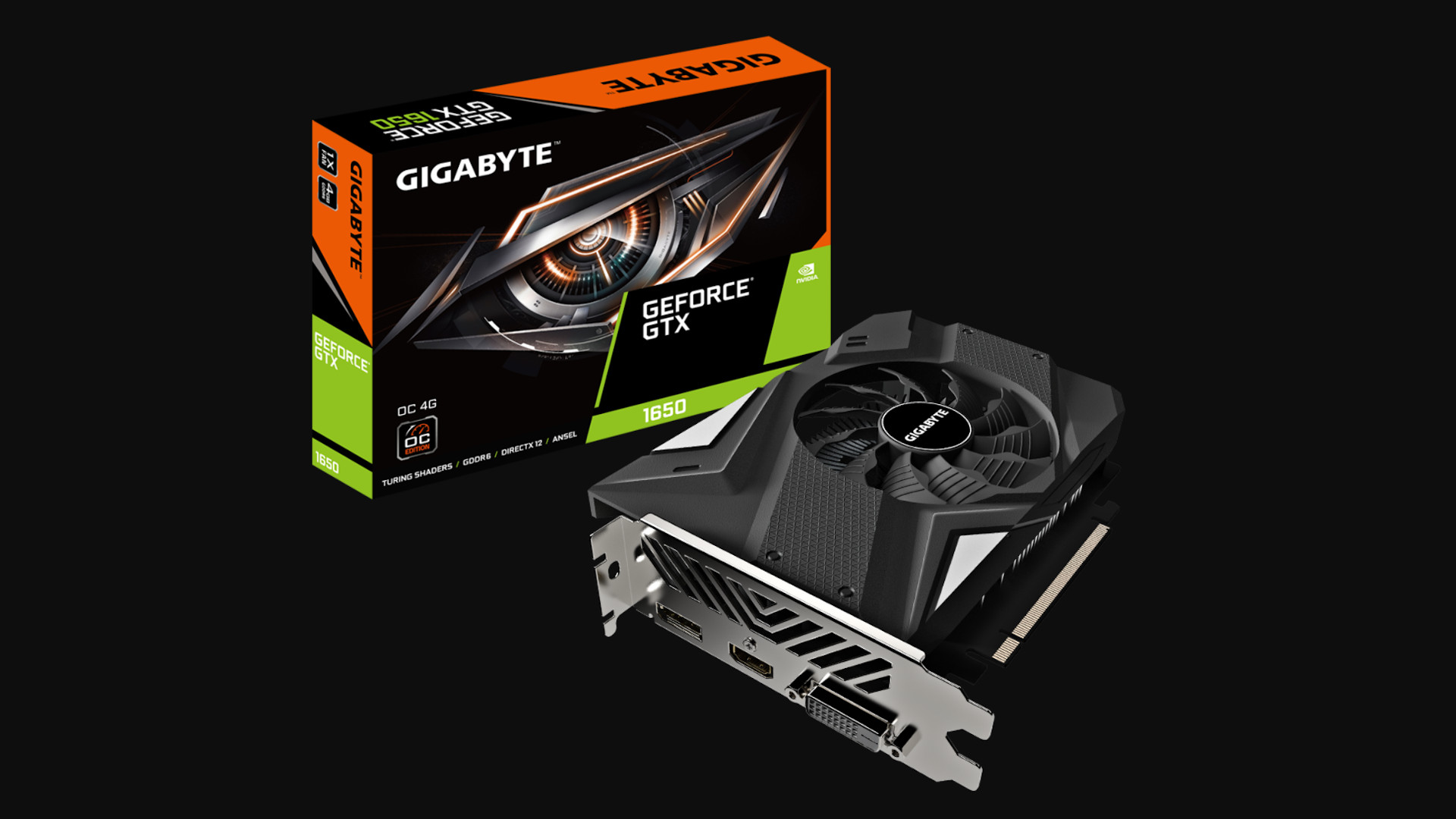Nvidia GTX 1060 is no longer the most popular GPU on Steam... but its successor might surprise you
GTX 1650 might be slower, but it has stolen the graphics card crown

Sign up for breaking news, reviews, opinion, top tech deals, and more.
You are now subscribed
Your newsletter sign-up was successful
Nvidia’s GTX 1650 is now the most popular graphics card used by gamers on Steam, ousting the GTX 1060 from the top spot, according to Valve’s latest hardware survey that scrutinizes the specs of a sample of its users.
This is a big deal because the GTX 1060 has held the number one position in the Steam GPU rankings for ages, so it’s something of a surprise to see a newcomer take the crown. Well, not a newcomer as such because the GTX 1650 is still an older graphics card, but you get what we mean.
The GTX 1650 is now in first place with 6.27% of the Steam userbase having this GPU inside their PC, beating out the GTX 1060 which is on 5.77%. The GTX 1650 gained 0.66% in the November survey, whereas the GTX 1060 dropped sharply by 1.85%.
In third place, we find the Nvidia RTX 2060 on 4.64%, which also dropped heavily, shedding 1.46% compared to the previous month.
Moving into fourth position was the card which actually made the biggest gain in November, namely the RTX 3060 laptop GPU which was up a beefy 1.24% to reach 4.63%, a whisker away from stealing third from the RTX 2060, in fact.
Analysis: Sales spike helped by Black Friday price-slashed PCs?
So, the GTX 1060 has finally been knocked off the top spot on Steam, but it had to happen eventually. It’s actually been replaced by an inferior graphics card, as you’re likely aware, because the GTX 1650 is not as quick as the 1060 for gaming frame rates across the board (though it’s not a huge distance behind, it’s some way adrift for sure).
This isn’t really a surprise though, because here at TechRadar, during the buying frenzy that was Black Friday week last month, we noticed a lot of cheap desktop PCs and laptops equipped with the GTX 1650 being sold thanks to good offers on these machines. That will have partly helped to drive up the numbers, no doubt, and also folks pulling the trigger on the standalone GTX 1650, which had the odd deal too. And of course, it’s not like you can buy the GTX 1060 anymore, not outside of the second-hand market (or having one shipped from China or something).
Sign up for breaking news, reviews, opinion, top tech deals, and more.
Realistically, buyers looking for an affordable Nvidia graphics card would be better off shooting for the GTX 1660, which has a bit more oomph than the GTX 1060, rather than trailing it as the 1650 does – but the likelihood is that sales are being driven by the 1650’s inclusion in prebuilt PCs and notebooks, as mentioned. It’s definitely worth springing a little extra cash for the 1660 if you can, for those looking at a graphics card upgrade at the budget level.
If you are mulling such an upgrade to the GTX 1660, mind you – or any of its supercharged variants, the Super or Ti – you might want to move fast. Mainly because the rumor mill insists that Nvidia is ditching all these versions, so they may not be on shelves much longer (the same is purportedly the case for the RTX 2060, as well).
If true, that’ll leave the GTX 1650 as the sole occupant of Nvidia’s low-end spectrum – well, there’s the 1630 as well, but that’s a GPU you want to steer clear of, trust us – and so we might see it gain further momentum at the top of the Steam charts in the future.
As a final observation tied into that RTX 3060 laptop GPU making big gains in the Steam rankings, if you take the desktop RTX 3060 card which is on a 3.41% share and add it to the mobile version’s 4.63%, you get a total share of 8.04% for the RTX 3060 overall. Which makes it the most popular graphics card when both mobile and desktop versions are combined for consideration. Furthermore, we expect this GPU to drive forward with market share in the future, too, given that the desktop RTX 4060 isn’t anywhere in sight (though the laptop version could be closer).
Via VideoCardz
Darren is a freelancer writing news and features for TechRadar (and occasionally T3) across a broad range of computing topics including CPUs, GPUs, various other hardware, VPNs, antivirus and more. He has written about tech for the best part of three decades, and writes books in his spare time (his debut novel - 'I Know What You Did Last Supper' - was published by Hachette UK in 2013).